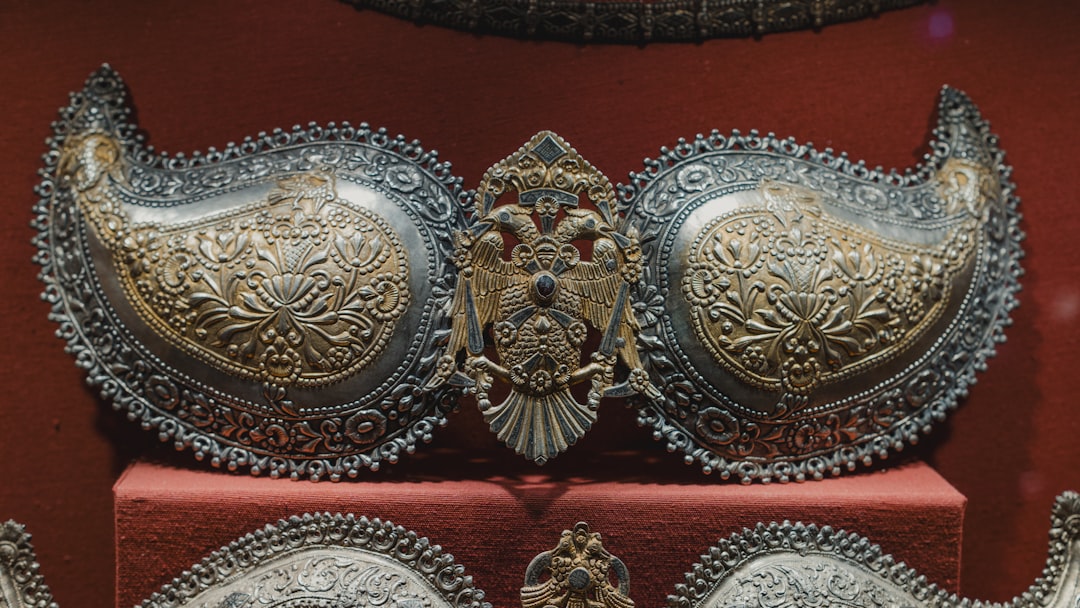The Ultimate Guide to Partnering with Ethical Wholesale Sterling Silver Manufacturers for a Sustainable Future
The Shift Towards Conscious Consumerism in the Jewelry Industry
The jewelry industry, long associated with luxury and beauty, is undergoing a significant transformation. Today's consumers are increasingly looking beyond the sparkle and shine, asking critical questions about the origin of the precious metals and gemstones they purchase. The dark side of the industry, including human rights violations, unsafe working conditions, and severe environmental degradation from traditional mining, has come to light. This has fueled a powerful movement towards ethical and sustainable practices, compelling wholesale sterling silver manufacturers and retailers alike to re-evaluate their supply chains. Choosing a partner who aligns with these values is no longer just a a selling point; it's an essential component of a modern, responsible brand.

Understanding the True Cost of Silver Mining
Traditional silver mining is a resource-intensive process with a significant environmental and social footprint. The extraction of silver ore often leads to deforestation, soil erosion, and water contamination from harmful chemicals like cyanide and mercury. Furthermore, the human cost can be immense, particularly in developing nations where regulations may be lax. Miners, including children, often face hazardous working conditions, unfair wages, and exploitation. Ethical sourcing aims to mitigate these issues by promoting responsible mining practices that protect both the environment and the workers who make this industry possible.
The Rising Importance of Recycled Sterling Silver
A highly effective way to mitigate the negative impacts of mining is to embrace recycled sterling silver. This sustainable alternative involves recovering silver from various post-consumer and industrial sources, such as old jewelry, electronics, and industrial scrap. The beauty of silver and other precious metals is that they can be melted down and reformed without any loss of quality. By opting for 100% recycled silver, wholesale manufacturers can drastically reduce the demand for new mining, conserve natural resources, and significantly cut down on the carbon emissions associated with extraction and processing. Many forward-thinking suppliers are now certifying that their silver is made from 100% recycled materials.
Key Certifications to Look for in an Ethical Supplier
Navigating the claims of ethical sourcing can be challenging. Fortunately, several independent certifications provide a reliable benchmark for responsible practices in the jewelry industry. When vetting potential wholesale sterling silver manufacturers, look for the following credentials:
- Responsible Jewellery Council (RJC): The RJC is a leading standards-setting organization for the entire jewelry supply chain. Certification from the RJC indicates that a company adheres to strict guidelines regarding business ethics, human rights, social performance, and environmental practices.
- Fairmined and Fairtrade: These certifications focus on artisanal and small-scale mining operations. They ensure that miners receive fair pay, work in safe conditions, and use environmentally responsible techniques. While more common for gold, these standards are expanding to other minerals.
- SCS Global Services: This organization provides third-party certification for a range of sustainability claims, including recycled content and responsible sourcing of precious metals.
- Sedex (Supplier Ethical Data Exchange): Sedex provides a platform for companies to manage and share ethical supply chain data. A Sedex audit signals a commitment to transparency and continuous improvement in labor rights, health and safety, and environmental impact.
| Certification Body | Key Focus Areas | Relevance for Sterling Silver |
|---|---|---|
| Responsible Jewellery Council (RJC) | Business ethics, human rights, environmental impact, and supply chain management from mine to retail. | A comprehensive certification covering the entire spectrum of responsible practices for a jewelry manufacturer. |
| Fairmined/Fairtrade | Fair wages, safe working conditions, and community development for artisanal and small-scale miners. | Ensures that if newly mined silver is used, it is sourced from operations that empower local communities. |
| SCS Global Services | Third-party verification of environmental and sustainability claims, including recycled content. | Verifies claims of using 100% recycled silver, providing credibility to sustainability marketing. |
| Sedex | Platform for sharing ethical data on labor standards, health & safety, environment, and business ethics. | Demonstrates a manufacturer's commitment to transparency and ethical performance within their own operations. |
Supply Chain Transparency: The Cornerstone of Trust
True ethical sourcing is impossible without transparency. A trustworthy wholesale sterling silver manufacturer should be able to trace their materials back to their origin. This “mine-to-market” traceability provides assurance that the silver has not passed through conflict zones or been produced through exploitative labor. Don't hesitate to ask potential partners detailed questions about their supply chain. Reputable suppliers will be proud to share information about their sourcing practices and the steps they take to ensure ethical and environmental responsibility. Some companies even trace their metals back to specific, regulated mines, offering the highest level of assurance.

Beyond the Metal: Ethical Sourcing of Gemstones
For jewelry that incorporates gemstones, the ethical considerations extend beyond the silver. The mining of diamonds and other precious stones has its own history of conflict and human rights abuses. When choosing a wholesale partner, inquire about their gemstone sourcing policies as well. Look for adherence to standards like the Kimberley Process Certification Scheme (KPCS), which aims to prevent the trade of conflict diamonds. A truly ethical manufacturer will apply the same level of scrutiny to their entire bill of materials, ensuring every component of their jewelry meets high standards of social and environmental responsibility.
Non-Toxic and Eco-Friendly Manufacturing Processes
Ethical manufacturing is not just about where the materials come from, but how they are processed. Traditional jewelry production can involve a host of toxic chemicals that are harmful to both workers and the environment. Leading manufacturers are investing in non-toxic and eco-friendly processes. This includes using refining techniques that are free of hazardous chemicals, implementing water recycling systems to reduce consumption, and investing in energy-efficient equipment to minimize their carbon footprint. These eco-conscious practices are a hallmark of a truly sustainable wholesale partner.
The Role of Technology in Sustainable Manufacturing
Technology and innovation are playing an increasingly crucial role in making the sterling silver industry more sustainable. Advanced refining processes can purify silver using less energy and fewer harsh chemicals. Some modern refineries even boast zero-emission capabilities. Furthermore, manufacturers are using state-of-the-art technology to create durable, high-quality pieces, maximizing the longevity of each item and promoting a circular economy. When evaluating a potential supplier, ask about their investment in technology and how it contributes to their sustainability goals.
Fair Labor Practices and Empowering Communities
At the heart of ethical manufacturing are fair labor practices. This means providing workers with a safe, healthy work environment, paying them a living wage, and prohibiting any form of forced or child labor. Many socially responsible companies go a step further by actively empowering the communities in which they operate. This can include supporting local artisans, investing in community development projects, and promoting gender equality in the workplace. Partnering with a manufacturer that champions these values adds a powerful story of positive social impact to your brand.
Building Your Brand on a Foundation of Ethics and Quality
In a competitive market, a strong brand identity is key. By partnering with a wholesale sterling silver manufacturer that is deeply committed to ethical and sustainable practices, you build your brand on a foundation of trust and integrity. Today's consumers are not just buying a product; they are buying into the values that the brand represents. Communicating your commitment to responsible sourcing, from the use of recycled materials to the certifications your partners hold, can be a powerful differentiator. It allows you to connect with a growing demographic of conscious consumers and build a loyal customer base that shares your values. Ensure your partner can provide the documentation and storytelling assets to help you confidently share your brand's ethical journey.
Conclusion: A Partnership for a Better Future
The move towards sustainability and ethical sourcing is reshaping the sterling silver jewelry industry for the better. For retailers and brand owners, the choice of a wholesale manufacturer is a critical decision that has far-reaching implications. By prioritizing partners who demonstrate a clear commitment to using recycled materials, achieving credible certifications, maintaining a transparent supply chain, and championing fair labor practices, you are not only ensuring the quality and integrity of your products, but you are also contributing to a more just and sustainable global community. Choose wisely, and build a brand that you and your customers can be proud of.
